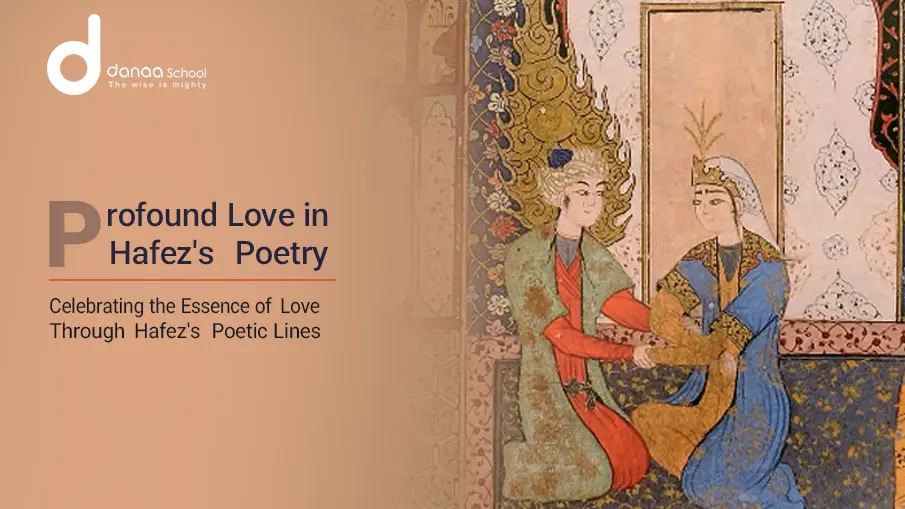What century was Hafez in? Hafez, the celebrated Persian poet, lived in the 14th century and remains one of the most influential literary figures in Persian culture. His poetry continues to enchant readers with its deep spiritual insight, lyrical beauty, and timeless wisdom.
Understanding what century was Hafez in helps us place his work within its historical and cultural context, revealing how political change, mysticism, and art shaped his poetic voice.
What Century Was Hafez In? A Glimpse into the 14th Century
Hafez, whose full name was Khwāja Shams-ud-Dīn Muḥammad Ḥāfeẓ-e Shīrāzī, was born around 1315 in Shiraz, Iran. This places him firmly in the 14th century, a transformative era in Persian history marked by political upheaval and cultural renewal.
Historical Context of the 14th Century
The 14th century followed the decline of the Mongol Ilkhanate and witnessed the rise of regional dynasties across Persia. Despite instability, cities like Shiraz flourished as centers of poetry, philosophy, and mysticism. It was in this vibrant intellectual environment that Hafez’s poetry emerged.
Hafez’s Life and Literary Works
Although details of Hafez’s early life remain limited, historians believe he memorized the Quran at a young age—earning the title “Hafez,” meaning the memorizer. This deep religious foundation strongly influenced his poetic imagery, symbolism, and spiritual depth.
Themes and Style
Hafez’s ghazals explore love, divine intoxication, spiritual hypocrisy, and the tension between worldly desire and mystical truth. His layered language allows multiple interpretations, making his poetry both intimate and universal.
Major Work: The Divan of Hafez
The Divan of Hafez, a collection of his ghazals, stands as one of the greatest achievements in Persian literature. For centuries, it has been used not only for reading but also for bibliomancy (Fal-e Hafez), especially during cultural ceremonies.
Why Hafez Still Matters Today
Knowing what century was Hafez in helps modern readers appreciate how his poetry transcended its time. His verses influenced thinkers far beyond Persia, including Goethe and Emerson, and remain widely read across cultures.
Global Recognition
Hafez’s poetry has been translated into dozens of languages and studied worldwide. Reputable sources such as Encyclopaedia Britannica and Wikipedia document his lasting global influence.
Hafez and Danaa School
At Danaa School, we introduce students to classical Persian poets like Hafez through structured courses and guided readings. Our programs help learners understand not only what century Hafez lived in, but why his voice still speaks to the modern world.
FAQs
What century was Hafez in?
Hafez lived in the 14th century, primarily during the 1300s in Shiraz, Persia.
Why is Hafez important?
He is considered one of the greatest Persian poets, known for blending mysticism, love, and social commentary in his ghazals.
Where can I learn more about Hafez?
You can explore in-depth courses and analyses at Danaa School.
When did Hafez live?
Hafez lived during the 14th century, specifically, he was born around 1315 and lived through much of that century in Shiraz, Iran. This period was significant for its political changes and cultural richness in Persia.
What is Hafez famous for?
Hafez is renowned for his lyrical poetry, particularly his ghazals, which explore themes of love, spirituality, and the critique of religious hypocrisy. His work is celebrated for its emotional depth and philosophical insights.
What major works did Hafez produce?
The most famous work of Hafez is the “Divan of Hafez,” a collection of his ghazals. This compilation is highly revered in Persian literature and continues to be studied and cherished worldwide for its poetic beauty and complexity.
How has Hafez influenced Persian culture?
Hafez’s poetry has a profound impact on Persian culture, resonating in music, art, and literature. His verses are often quoted in various cultural contexts and ceremonies, symbolizing the depth of Persian emotional and spiritual life.
Why does Hafez's work remain relevant today?
Hafez’s work transcends time and geography with its universal themes of human emotion, spiritual longing, and critique of societal norms. His ability to blend earthly and divine love continues to appeal to a global audience, maintaining his relevance in both academic and popular cultures.
Conclusion
Hafez’s poetry remains a timeless treasure, capturing the essence of human experience and spiritual longing. His 14th-century verses continue to resonate, offering wisdom and beauty to readers around the world. As we reflect on his legacy, we invite you to delve deeper into Persian literature and discover the profound insights of one of its most cherished poets.
At Danaa School, we’re committed to nurturing a love for literature and cultural heritage. Join us in exploring the works of Hafez and other literary greats through our engaging programs and activities. To learn more about our offerings and how we integrate literary appreciation into our curriculum, visit our website or contact us directly.










